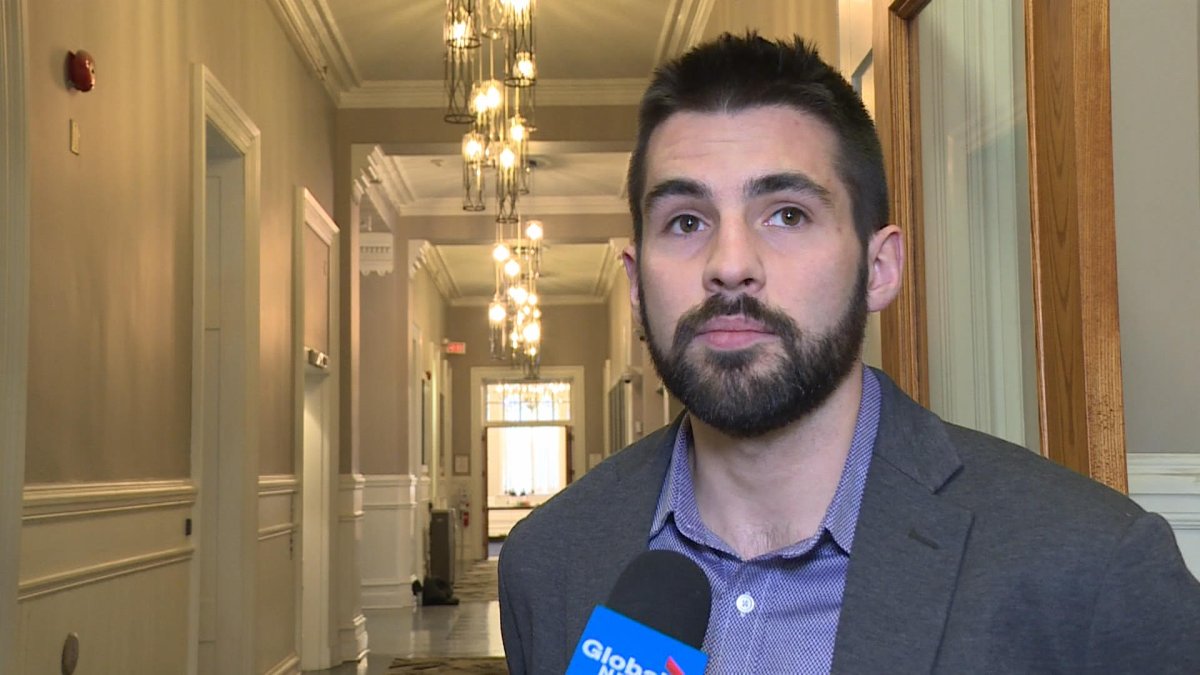Years have passed since discussions of bringing sobering centres to Nova Scotia first began, but one advocate is hoping both police and government officials are moving towards making the “drunk tank alternative” a reality.

“There’s a real lack of these sorts of services in Eastern Canada,” said Harry Critchley, vice-chair of the East Coast Prison Justice Society and Dalhousie University law student, who added that a sobering centre could have helped prevent the death of Corey Rogers.
“We’re hoping that the kind of discussions that we’re having here — which unfortunately did result from Corey’s unfortunate … ultimately very much preventable death — we’re hoping that we’ll have some positive results.”
Rogers died in 2016 while in police custody after he was arrested for public intoxication and determined by police to be “fit enough” to lay in a cell. A spit-hood was placed over his head because officers said he was uncooperative during the arrest. The spit-hood later led to him choking on his vomit, suffocating and dying.
Last November, two special constables were found guilty of criminal negligence in Rogers death. Their sentencing is scheduled for Feb. 14, 2020.
Critchley says Rogers death was preventable and is an unfortunate example of why sobering centres need to be supported and created in Nova Scotia.
Critchley adds that drunk tanks only offer a criminal response to an issue that often requires medical attention.
“It criminalizes addiction and alcohol abuse disorder. Something that should really be treated, more effectively, from a civilian and medicalized response.”
The death of Rogers is just one of many cases in Nova Scotia, where people were arrested for public intoxication and later died in custody.
READ MORE: Jury finds Halifax special constables guilty of criminal negligence in death of Corey Rogers
“Going back to Victoria Paul, in Truro, in 2009, and most recently, in Amherst in 2019, a 71-year-old man died in the drunk tank,” Critchley said.
Both Paul and 71-year-old Arnold Martin suffered a stroke while in custody.
Both deaths were investigated for police negligence.
In Paul’s case, it was found that Truro Police failed to provide her with timely access to medical services, among several other failures.
In Martin’s case, it was found Amherst police were only trained in basic first aid, not the further medical training required to determine he was in need of emergency care.
The Amherst police officers who dealt with Martin were cleared of any wrongdoing.
- B.C. to ban drug use in all public places in major overhaul of decriminalization
- 3 women diagnosed with HIV after ‘vampire facials’ at unlicensed U.S. spa
- Solar eclipse eye damage: More than 160 cases reported in Ontario, Quebec
- ‘Super lice’ are becoming more resistant to chemical shampoos. What to use instead
Sobering centres exist across Canada, from British Columbia to Ontario. Critchley says there is a desperate need to expand those services farther east.
He says evidence shows the centres reduce necessary contact with police.
READ MORE: MMIWG inquiry hears calls for increased punitive damages in deaths of Indigenous women
According to Halifax Regional Police statistics, 1,894 people were taken into custody between January to November 2017 for public intoxication.
Critchley says the centres also reduce unnecessary visits to emergency departments by employing health-care providers to conduct medical intake assessments.
“That’s going to form an essential piece of the triage. So it’s going to determine whether that person can safely stay there at the sobering centre or whether their health needs are so acute that they need to be transported to hospital.”
Critchley recently presented his proposal for sobering centres to the police board of commissioners.
Commissioner and councillor Lindell Smith proposed that the board pass on a feasibility report request to regional council.
Smith said it’s within the scope of the municipal government to decide what direction the sobering centre request should head in.
“This is going to touch more than the police commission and the Halifax Regional Police, this is something that’s going to touch the Halifax Regional Municipality as a whole. So why not bring it to council?”
It’s expected that a motion to request a staff report will be introduced at the next council meeting. A feasibility report could take six to eight months to complete.





Comments